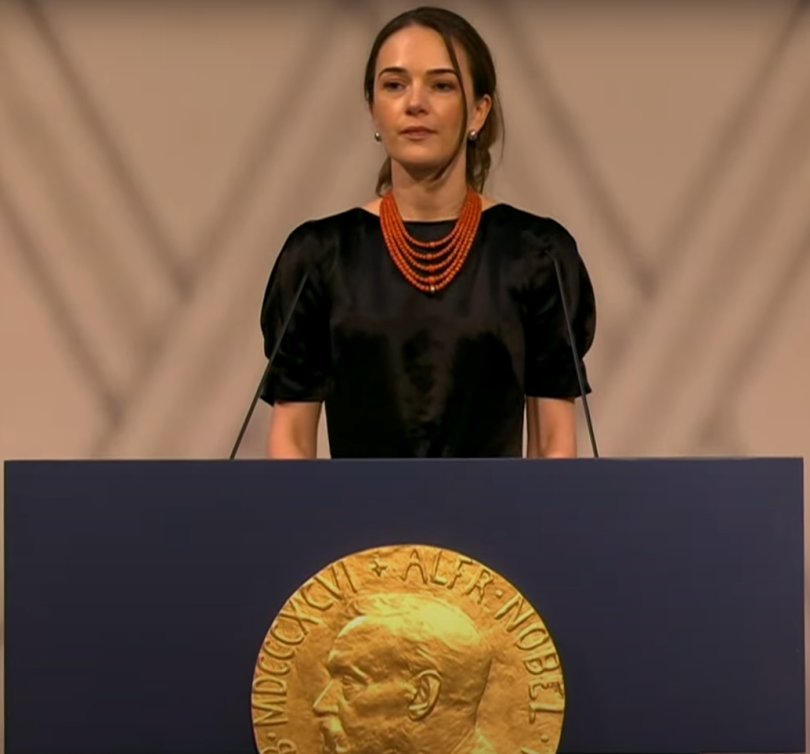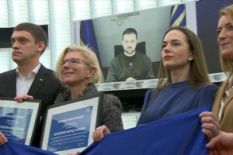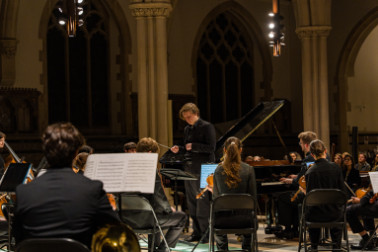Philosophers can argue endlessly about the nature of human rights, but the international community has already declared its unwavering commitment to the idea. And on December 10, the world celebrates International Human Rights Day. It was on this day 74 years ago that the UN General Assembly adopted the Universal Declaration of Human Rights.
Since then, the principles have been enshrined in numerous international, regional and national legal documents. Thanks to the introduction of norms for the protection of human rights to numerous legally binding treaties (known as "conventions" or "agreements"), they try to assure us that the legal status of these norms cannot be doubted today. Theoretically. But in practice... There are many contradictions. Even 4 thousand years ago, inconsistencies can be found in the text of the first ever written code of laws of King Hammurabi of Iraq. Then the head of the country called "to rule the kingdom justly, to exterminate the evil and cruel, not to allow the strong to oppress the weak, ... to elevate the country and promote the well-being of the people." Those "strong", who promised not to oppress the "weak", introduced the rules of destruction of the "evil" and "cruel". Who are the judges? Who defines those categories?
At the same time, one of the ancient Egyptian pharaohs picked up the trend of protecting human rights and gave instructions to his subordinates: "When a foreigner comes from the Upper or Lower Nile with a request, make sure that everything takes place in accordance with the law, that customs are observed and that everyone's rights are respected". The African worldview, denoted by the Zulu word "ubuntu" (humanity), reflects the same essence of humanism. This concept clearly emphasizes the importance of respect for all members of the community, hospitality and generosity. The expression "a person becomes a person in the society of other people" best conveys the meaning of the word "ubuntu", and this concept in general is directly related to human rights. If we become human in society, then by depriving other people of their right to be human, we ourselves cease to be human.
Even before February 2022, the protection of women's rights was the loudest topic, then after - we simply shouted to the whole world about hundreds and thousands of people's rights violations in Ukraine by the Russian army and the leadership of an aggressive "neighbor". And if the Ukrainians' long-term path of to the ratification of the European Council's Convention on the topic of prevention women and domestic violence triggered the Istanbul Convention's entry to force on November 1 of this year, then the recording and collection of evidence on the violation of people's rights since the russian invasion, just continues. Ukraine has an intergovernmental platform for gathering evidence for the defense and representation of Ukraine at the European Court of Human Rights and the UN International Court of Justice. In addition to state mechanisms, hundreds of Ukrainian public organizations joined the work in the human rights field. In 2014, Ukrainian, Canadian, Swiss economist, public figure, philanthropist, foreign member of the Ukrainian National Academy of Sciences, Bohdan Gavrylyshyn created the Declaration of Human Responsibility, which consists of 15 points. Working at the global level as a member of the Supervisory Board of the International Academy of Arts and Sciences in early 2010s Bohdan Gavrylyshyn came to the conclusion that the world is not healthy and that in order to change the situation, it is necessary to take responsibility at all levels. That was one of the first most powerful signals from Ukrainians to the world. Furthermore.. More and more human rights defenders joined the work. Currently, analysts of the Ukrainian Helsinki Union for Human Rights continue to deal with data processing, fact-finding and monitoring the cases and create an empirical basis for legislative initiatives. In the summer, the coalition "Ukraine. "Five in the Morning" submitted an appeal to the Prosecutor General of Ukraine to ensure proper investigation of criminal proceedings for the citizens of Ukraine who were forcibly mobilized in the temporarily occupied territories. And in October, Ukrainian human rights defenders from the “Ukraine coalition. 5 in the morning" have become candidates for the Vaclav Havel Prize for Human Rights, which recognizes outstanding actions of civil society to protect human rights in Europe and beyond.
On October 7, Ukraine received the first Nobel Peace Prize, the Center for Civil Liberties became the laureate. On December 10, the Nobel Peace Prize award ceremony was held in the capital of Norway. In addition to Ukrainian human rights defenders, it was won by the Russian "Memorial", the Ukrainian "Center for Civil Liberties" and the Belarusian human rights defender Ales Bilyatskyi. The Ukrainian "Center for Civil Liberties" was represented at the award ceremony by its head - human rights activist Oleksandra Matviychuk.

She considers awarding the Nobel Peace Prize "as a recognition of the Ukrainian people's efforts, who courageously resisted attempts to destroy the peaceful development of Europe, and as a recognition of the importance of the work carried out by human rights defenders to prevent the threat of war to the whole world." According to Matviychuk, the example of Russia made it obvious that "the world, progress and human rights are inextricably linked." "A state that kills journalists, imprisons activists or disperses peaceful demonstrations poses a threat not only to its citizens. Such a state poses a threat to the entire region and the world as a whole," she emphasized.
Matviychuk called for reforming the international system to protect people from wars and authoritarian regimes. "We need effective guarantees of security and respect for human rights for citizens of all states, regardless of their participation in military alliances, military or economic power. The basis of this new system should be human rights," the activist emphasized. She also pointed out the need to create an international tribunal and bring the President of the Russian Federation, Vladimir Putin, the head of Belarus, Alexander Lukashenko, and other persons suspected of committing war crimes to justice. "Yes, this is a bold step. But we have to prove that the rule of law really works, and justice exists, even if they are late," Matviychuk added. This is a special victory for Ukraine, because the world society has recognized the struggle of every Ukrainian for peace. This human rights organization, which has been working on the protection of human rights in Ukraine and the OSCE region for 15 years. And today it is difficult to find a person who would not mention the large-scale and loud Save Oleg Sentsov action organized by representatives of the Center for Civil Liberties. Then a wave of demonstrations swept through 35 countries of the world. And the result was the release of political prisoners. Back in 2014, the Center for Civil Liberties was the first in the world to send mobile teams to document war crimes in Crimea and Eastern Ukraine. The most famous project of the organization is Euromaidan SOS, where the Center for Civil Liberties fought against the injustice of the entire state machine and defended people even when their hands were down. Right now, human rights activists are working to bring the entire top Russian and Belarusian high-ranking officials to trial as part of the Putin tribunal initiative. The head of the board of the organization, Oleksandra Matviychuk, assures that this award was received by the entire Ukrainian people, who choose the right to freedom to be an independent country, for the freedom of the Ukrainian language and culture, for the right to have a democratic choice to build a country that protects the rights of every person, where the state leadership takes responsibility for this, where an independent court and the police only protect mass student demonstrations and demonstrations.
"Now more than ever we feel what it is like to be a real person, and my extensive experience confirms that people have much more influence than they think. Our work is resistance to general evil, it demonstrates that freedom has no borders, and human values are universal for every nation. That human rights defenders build invisible horizontal connections in their communities in order to protect people where some "monster" rules once again. But sooner or later he will lose and then light of peace will prevail," said Ms. Oleksandra in her speech at a special press conference on October 8 dedicated to this year's Peace Prize laureates.
During an exclusive interview with Oleksandra Matviychuk for Destinations, the Nobel laureate answered our questions:
- Mrs. Oleksandra, are the usual legal terms enough to describe what is happening in the legal field of Ukrainians rights violation today?
- One must call a spade a spade — Russia uses war crimes as a method of waging war, purposefully destroying residential buildings, schools, kindergartens, churches and museums, purposefully terrorizing the population in the occupied territories. We record murders, rapes, tortures, kidnappings. Russia wants to overcome resistance and occupy the country because of the unspeakable pain of the civilian population. The top leadership of the Russian Federation, Putin and his entourage openly declared the deliberate destruction of critical civilian infrastructure. This is terrorism. It should be called that.
- In your opinion, what are the most important manifestations of Ukrainian society's responsibility? Is there a transformation of this quality?
- I have to tell you one important life lesson that I learned during the Revolution of Dignity - then we launched the "Euromaidan SOS" initiative, which united a large number of people to provide legal assistance to protest participants throughout the country. We worked 24 hours a day, hundreds of beaten, arrested, tortured, accused in fabricated criminal and administrative cases passed through our hands. Then we fought against the entire state machine, which tried to destroy the peace process even physically. But our volunteers, our lawyers fought for every person, for every procedural means with honesty. But the most important lesson of my life is that even when our struggle does not seem to make sense, we must continue to honestly fight for freedom and human rights. And the result, unexpectedly, will appear.
- What holds the most power in the struggle for freedom and human rights? You can formulate it like no one else.
- I remember how before the invasion, international observers and politicians believed that Ukraine would not be able to resist the second army in the world, and I told my colleagues from Ukraine and foreign partners that because they live too long in developed democracies, they have a habit that in case of complex challenges there are quite stable democratic institutions that overcome these challenges. We, in Ukraine, have never had such luxury. Therefore, even in the event of a threat, points of crystallization arise not only in state authorities, but in all spheres of public society. Ukraine is a nation of self-organized people. And we have already proved that people are more important than any army."
Photo from Oleksandra Matviichuk’s Facebook page







